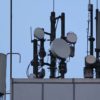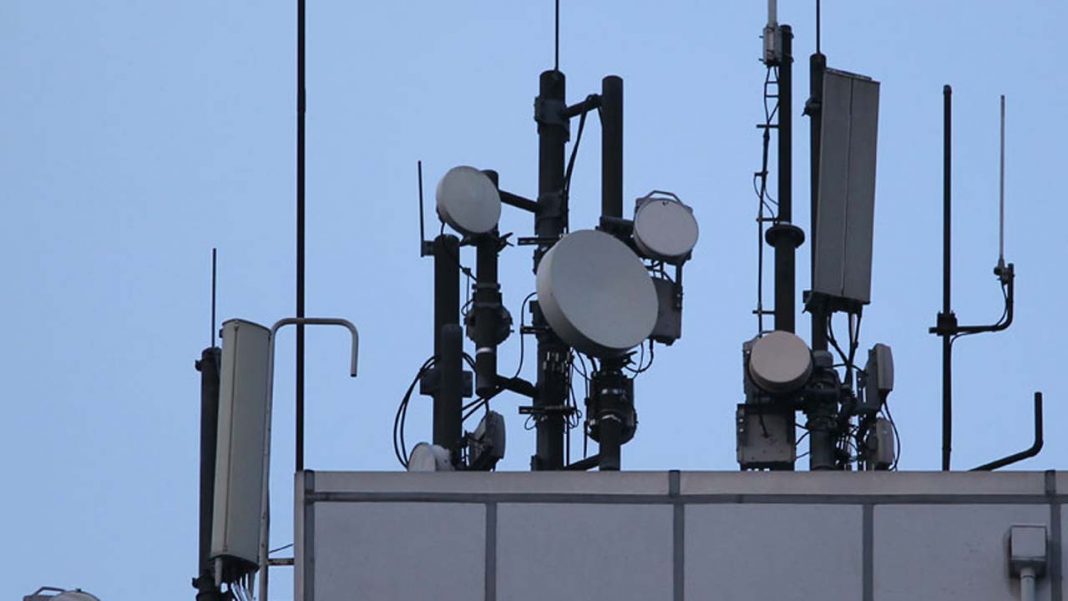
Though telecommunications operators in Nigeria have connected some 269 million telephone lines, with 185 million people in the country becoming active users as in January, however, huge access gaps still exist. This is seen as one of the dark spots of the sector with almost two decades of telecoms revolution in the country.
Going by the Nigerian Communications Commission (NCC) disclosure last year, the country still has 200 access gaps, which house some 35 million Nigerians. The implication of this is that out of the estimated 200 million people in the country, some 35 million people are yet to have access to basic telephony service.
It is worthy of mention that over $70 billion have thus far been invested in the sector, and more investments have been called for, especially to take services to the hinterland.
While investment is critical, availability of resources, government’s policies and direction, and favourable environment have all been identified.
According to stakeholders, one of the government’s policies that can unlock more growth will include spectrum availability. Spectrum is the oxygen that keeps the sector going and in almost two decades of the revolution in the country, its sales have added over N400 billion to government coffers.
Besides, analysts have noted that the proliferation of wireless services and demand for greater mobility has exerted pressure on spectrum managers to make available additional spectrum both in lower and higher bands.
Current spectrum management practice shows that the availability of the resource would unlock more and new telecoms sector potential.
However, spectrum sharing or trading is one solution to make available additional spectrum for new services. Sharing improves spectrum utilisation and provides enormous possibilities.
The Nigerian Communications Act 2003 (the NCA) in section 157 defines spectrum as “the continuous range of electromagnetic wave frequencies up to and including a frequency of 420 terahertz.” It also refers to the radio frequencies allocated to the mobile communications industry and other sectors for communication over airwaves and it is the means through which wireless communication is realised.
Spectrum is a critical but scarce and finite national resource that needs to be optimally and efficiently managed in order to support the drive for socio-economic developments. Increasing subscriber demands for faster Internet, larger data capacity, higher quality video and an evolving array of services will continue to drive and exponentially increase the industry’s appetite for both coverage and capacity spectrum and exert a lot of pressure on national regulators globally.
Checks showed that regulators globally are now under a lot of pressure to not only release new spectrum bands to stakeholders in an affordable, timely, fair and transparent manner but also monitor and ensure the optimal use of already assigned spectrum. The prerequisite to ensure the optimal and efficient use of already assigned spectrum bands highlights the importance of having a defined framework for spectrum trading activities.
The spectrum trading initiative being explored by the NCC is a welcome development as it permits the trading of the assigned spectrum that is either not being utilised or is under-utilised to an operator that requires the same.
Indeed, The Guardian gathered that 45 per cent of spectrum bands in the sector are under utilise, hence the need for a measure to tackle this problem.
So many things have continued to stoke this development. Chief of which has been a lack of funds as a result of slow economic growth in the country.
According to a telecoms expert, Kehinde Aluko, “some of the operators paid hugely for the spectrum, but subsequently couldn’t roll out services. Some operators had to empty their accounts, borrow loans with huge interest rate.”
Others according to him, are ego! “Some operators actually don’t need some of the spectrum, but they got it. They just want the competition to know that these sets of bands are with them without putting it to effective use.”
But as part of measures to bridge this challenge, the NCC, under the leadership of its Executive Vice Chairman, Prof. Umar Danbatta, introduced the spectrum trading scheme on April 12, 2018, after serious consultations with stakeholders.
It is basically a secondary mechanism of assigning spectrum with the capability of unlocking the potential of new technologies and reducing barriers to new entrants in the industry.
“The whole essence of introducing spectrum trading regime in Nigeria is that it will now be legal for any player holding a redundant spectrum licence to sell/transfer such spectrum to an operator that is keenly in need of it with NCC only coming in to regulate their transactions,” Danbatta said at a forum in Lagos.
The Director of Spectrum Administration at the NCC, Austine Nwaulune, said spectrum trading is a management practice that permits the transfer of spectrum licence rights and obligations from one party to another in various forms and scope after a commercial transaction duly approved by NCC.
According to NCC, these guidelines on spectrum trading are made pursuant to Sections 4 (j) and 121 (1) of the Nigerian Communications Act 2003, which empower the Commission to manage, administer and regulate the use of Spectrum for the communications sector.
Justification for the spectrum trading guidelines
With most services being delivered through wireless means in Nigeria, the need to accelerate release of available spectrum bands to existing and new telecoms players has become indispensable while spectrum trading will also help in ‘bringing some spectrum licences not being used to provide services into active use by those operators that need those spectra to deploy services as Nigeria champions accelerated mobile broadband penetration in the country.”
It must also be mentioned that the new broadband target set for the country for 2020 to 2024, after the country achieved the 2018 target of 30 per cent penetration, is dependent on effective utilisation of spectrum and one of such framework that NCC, under Danbatta, put in place in 2018, is the Spectrum Trading Guidelines.
According to Aluko, to achieve a fully digital economy, the country must ensure proper and effective utilisation of spectrum and in this case, dormant or sleeping spectrum licences had to be woken up, through the new guidelines.
Benefits of the trading spectrum
According to checks, spectrum trading ensures effective utilisation of limited spectrum resources. It also ensure that spectrum is used by those operators who need it deploy services, do business, generate revenue, be in a position to pay taxes for government, provide services for individuals and corporate organisations and then help to bridge 200 access gaps involving some 35 million Nigerians no having access to telecoms services in the country.
It also helps to widen service options for Nigerians. It contributes to the socio-economic development of Nigeria.
Trading is also expected to help accelerate the current efforts of the FG for digital economic agenda within the context of the National Digital Economy Policy and Strategy unveiled by President Muhammadu Buhari in November 2019.
Airtel gets Intercellular’s spectrum
With its implementation, Airtel Africa Plc announced on Monday that it has completed the spectrum acquisition for a sum of $94 million after obtaining approval from the NCC.
The telecommunications company said that it acquired the 10 megahertz spectrum in the 900 megahertz band in Nigeria from Intercellular Nigeria Limited.
The company explained that the $94 million included NCC fees in line with the commission’s Spectrum Trading Guidelines.
The telecoms company had initially announced the deal in November 2019.
According to Airtel, the additional spectrum would help reinforce its 4G position in Nigeria and increase the available capacity of the existing network.
The telco added that the new spectrum would provide more opportunities for data and home broadband services, improve both voice call quality and data experience and deepen Airtel Africa’s competitiveness in Nigeria.
Perspectives of GSMA
In July 2018, four months after the Guidelines were introduced, the GSMA commended NCC.
The GSMA, the body, which represents the interest of over 800 mobile operators and vendors across the globe, said the initiative will allow for a telecoms environment that would ensure efficient use of scarce spectrum resources.
The body disclosed that it had a long-standing engagement with the NCC with respect to the need to develop guidelines to facilitate the transfer, leasing, and sharing of spectrum.
GSMA said it was happy that NCC has published the new regulatory guidelines that now facilitate the trading and sharing of spectrum in Nigeria.
The statement noted that the policy is a great revolution in the Nigerian regulatory environment and a great achievement for the spectrum, policy and regulatory team in the sub-Saharan Africa region.
Stakeholders’ views
According to the President, Association of Telecoms Companies of Nigeria (ATCON), Olusola Teniola, telecoms companies have been waiting patiently for spectrum trading.
He argued that the Spectrum Trading is a good and novel policy introduce by the regulator under Danbatta, which would help in re-activating the industry by ensuring that “all inactive spectrum licences are given to those who need them.”
He noted that earlier, the NCC had had deliberations with industry players on the modalities for spectrum trading, stressing “for now, we as players are expecting what direction the regulator wants to toe in implementing the initiative.”
Teniola said spectrum trading is an alien concept in the nation’s telecoms space but telecoms players under the auspices of ATCON see it as a veritable alternative to making more spectrum available in the country.
“You will recall that in November 2016, the Nigerian Communications Commission (NCC) engaged telecoms stakeholders to dialogue on modalities that can be used to introduce spectrum trading in Nigeria,” he said.
President, National Association of Telecoms Subscribers (NATCOMS), Deolu Ogunbanjo, also justified the need for more spectrum for operators that need them to offer better services to the growing number of telecoms consumers in the country.
Meanwhile, while spectrum trading is forced across many countries, such a policy is alien to Nigeria but analysts say effective implementation of the impending spectrum trading policy in Nigeria will go a long way to further accelerate the deployment of pervasive broadband services across the country.
